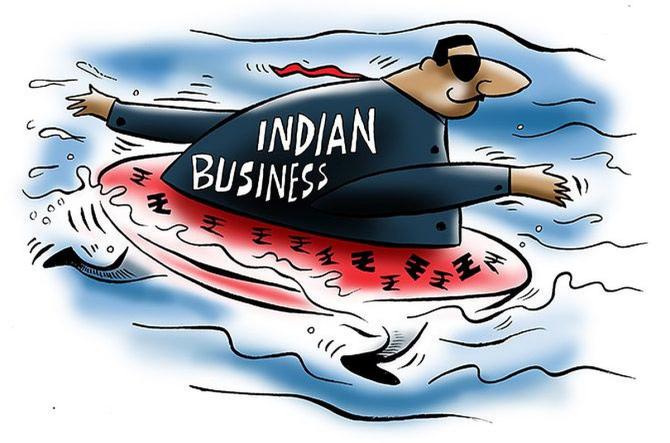India Inc’s net profit as a percentage of the country's gross domestic product (GDP) is just shy of reaching 5 per cent, bolstered by strong earnings growth in the second quarter of 2023-24.

Analysts interpret this as an indication that a corporate profit upcycle is in progress, with projections suggesting that this share could exceed 8 per cent within the next five years, driven by bullish earnings growth expectations.
“We believe we are only halfway through a profit cycle, with the profit share in GDP rising from a low of 2 per cent in 2020 to about 5 per cent currently, and likely heading to 8 per cent in the coming four to five years.
"This implies about 20 per cent compounding of earnings growth.
"Underscoring this forecast is the start of a new private capex cycle, under-geared balance sheets, a healthy banking system, lower corporate tax rates, improving terms of trade, and structural consumption demand outlook albeit somewhat offset by likely consolidation in government deficit,” said Ridham Desai, managing director, head of research, Morgan Stanley India in a note.
Morgan Stanley believes that strong earnings growth relative to GDP growth is one of the five key drivers underpinning “India’s structural bull market”.
The last time the profit-to-GDP ratio exceeded 5 per cent was in 2007-08.
Since then, it contracted each fiscal year between FY09 and FY21, with a few exceptions such as FY17 when the profits of global cyclicals (metals and energy) rebounded and the losses of state-owned banks diminished.
The latest uptick is also supported by cyclicals.
Vinod Karki, equity strategist at ICICI Securities, explained in a note: “Cyclicals drove profit growth by contributing 95 per cent to the change in free float net profit growth (year-on-year) while defensives, led by IT, lagged.
"On the flip side, metals and telecom added the maximum to the loss pool while the internet blunted some of the impact.”
In the medium to long term, analysts anticipate a more widespread contribution to India Inc’s profit pool growth.
Sunil Koul, Asia Pacific equity strategist at Goldman Sachs, said: “We have reached a point where the manufacturing deleveraging cycle is over, and bank balance sheets have been cleaned.
"Bank profitability has improved recently, partly driving profitability in the past few years.
"Now, it will broaden out because consumption will start to improve, and post-election, your investment cycle will improve.
"And so growth, which is more commodity- and financially driven, will start to broaden.”
Koul also noted that the post-Covid uptick in the profit-to-GDP ratio was accentuated by relatively weaker GDP growth and stronger earnings growth at banks and commodity companies.
Over the past decade, the profitability of India Inc grew at a rate lower than the nominal GDP growth, which also compressed the ratio.
However, in recent years, corporate profits growth has managed to surpass the GDP growth rates, largely due to an improvement in net profit margin even as revenue growth remained tepid.
“If you get another 15-20 per cent growth in the next couple of years, and nominal GDP still runs at 11 per cent, your profit-to-GDP ratio continues to grow.
"Even with weaker sectors, like IT, the earnings growth is still over 12 per cent,” said Koul.











